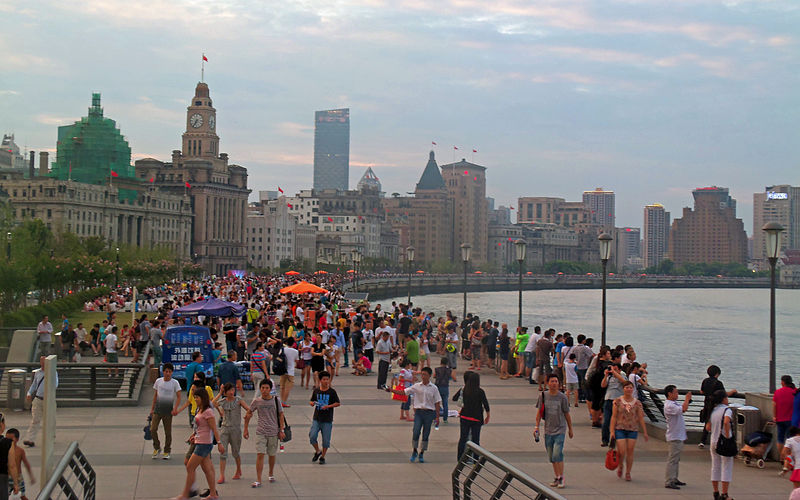
October 6, 2014, by Tony Hong
People Mountain, People Sea
By Dr David O’Brien,
Assistant Professor, School of Contemporary Chinese Studies,
The University of Nottingham Ningbo China.
In the past seven days somewhere in the region of 480 million trips were made in China as the nation basked in the ‘golden week’ National Holiday.
Since 1999 the majority of Chinese workers are given three days off with two other days restructured to the weekends ensuring that most of the country gets a full seven days holiday in the first week of October.
With China’s middle class expected to number 800 million by 2020, , the number of trips can only be expected to increase and already creaking tourist infrastructure may struggle to cope with the extraordinary number of people who want to just get away from it all.
Travelling anywhere during Golden Week is an ordeal beyond description with road journeys which usually take a few hours, taking up to 12, 15 or 20.
But it’s not just the travel, this is also one of the biggest shopping weeks of the year with retailers hoping that a holiday commemorating the founding of the People’s Republic will have the tiles ringing and crowds teeming.
While much of the world’s attention has been on events in Hong Kong, for most mainlanders this week is about shopping, travel and crowds.
Horror stories of cars on the highway outside of Beijing moving 100 meters in two hours on Wednesday, the first day Golden Week were all too common.
An old Chinese saying “People Mountain, People Sea” (人山人海) is never truer than during the past few days.
One Zhejiang couple were forced to hold their wedding vows on the side of the road after the groom became stuck in a massive tailback. Apparently the panicked groom called a local radio station who told him he would not get through and promised to hold the exchange of vows live on air so his friends and family could hear it.
Last year The Forbidden City in Beijing received 170,000 visitors on October 2 – double the expected turnout, while more than 98,000 poured into the Summer Palace. On the same day, number of visitors to Hangzhou’s beautiful West Lake numbered over 1 million for the first time ever.
In one of the worst cases tens of thousands of tourists were reportedly stranded in Jiuzhaigou Valley in south western Sichuan for more than 11 hours due to long traffic jams on the roads leading to and from the mountain. The nightmare was described by one man trapped at the scene as “11 hours of chaos, anger, desperation and starvation.”
The local tourism bureau made a formal apology, adding that they would refund tickets sold on that day, which had cost a hefty 300 yuan.
There have been many attempts to ease the problems. Under China’s first Tourism Law, which came into effect last year, scenic spots are not allowed to receive tourists exceeding their capacities but it is unclear how this capacity is decided.
Faced with such huge crowds more and more Chinese are deciding to travel abroad.
In an interview with the Economic Information Daily newspaper Dai Bin President of the China Tourism predicted that outbound tourism would see a dramatic increase during the holiday.
“By the end of 2014, the number of outbound tourists is expected to reach 116 million, up 18.2 percent year-on-year, and their spending abroad to increase by 20 percent to US$115 billion. The overseas tourism market is huge and extensive, covering catering, accommodation, shopping, culture and mobile payment,” Dai said.
Yet for most travel abroad is still an unaffordable luxury and with domestic travel increasingly attainable, the numbers taking to the highways and trains during Golden Week is only likely to increase.
No comments yet, fill out a comment to be the first

Leave a Reply